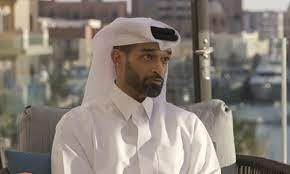By Andrew Warshaw
December 20 – Qatar’s World Cup chief Hassan Al Thawadi insists the tournament changed perceptions of the region and transformed his country.
But while the Gulf state may have defied doubts that could host such a huge event while showcasing its hospitality and organisational skills, the real legacy of the first ever World Cup in the Middle East cannot really be gauged for weeks, if not months.
The final may have been the best ever and some of the shock results that preceded it unprecedented, but this surely had little to do with where the competition was actually staged.
In other words, Qatar got lucky as far as all the excitement was concerned while opinion is still polarised in terms of whether the country should have staged the competition in the first place.
In an interview with Sky, Al Thawadi, secretary general of Qatar’s Supreme Committee for Delivery and Legacy, promised that improved treatment for migrant workers was here to stay.
“We’ve endeavoured for this tournament to be an accelerant to improve the conditions on labour reforms because the situation previously was not acceptable despite the best intentions,” he admitted.
Al Thawadi described the last four weeks as “a celebration of the Arab people, of our culture, of our tradition, of our history.”
“People might have come in with different opinions. And I’ve heard it from many, in particular Europeans, saying that they might have come to support the team – but with trepidation, a little bit of concern.
“But when they engaged with the Qatari community, when they engaged with the Arab community, when they engaged with the hospitality, a lot of them walked away with a different opinion, a different view.”
That is true to a large extent even though at times there was a somewhat cosmetic, artificial feel about the whole spectacle. There was little or none of traditional car horn blowing in the streets, for instance, and few if any vehicles or houses hung flags outside their windows.
The Middle East as whole deserved to stage the tournament – the thousands of Arab and north African fans that poured into the country are testament to that. But Qatar going out pitifully in the group stage only served to show that they couldn’t live with established football nations despite all the pre-tournament rhetoric.
Nor is there any evidence that the Gulf state, for all its affluence and sophistication, will suddenly become a major tourist destination like neighbouring Dubai.
This World Cup will always be remembered as the fulfilment of Lionel Messi’s dream and there is little doubt that it benefitted from its unique compact nature and the cheerful disposition of thousands of fans from east and west mixing together in a confined yet ultra-safe environment.
But the key question, now that the PR machine winds down, is whether FIFA’s controversial decision 12 years ago was ultimately vindicated.
Only time will tell in terms of what kind of legacy is left behind – on and off the pitch.
Contact the writer of this story at moc.l1743731426labto1743731426ofdlr1743731426owedi1743731426sni@w1743731426ahsra1743731426w.wer1743731426dna1743731426

